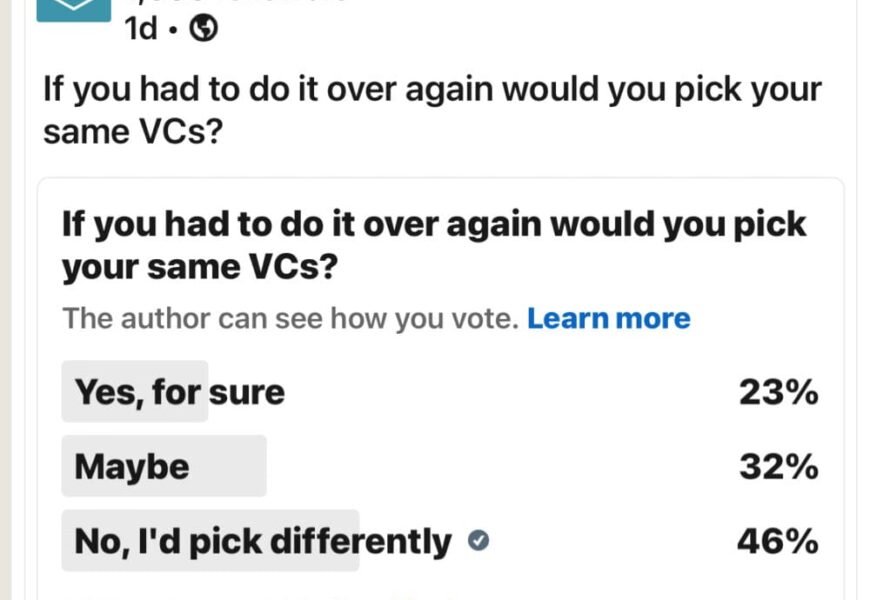Recently, a SaaStr survey was conducted to determine if individuals would choose the same VCs if given the chance to start over. The results revealed that only 23% would definitely choose the same VCs again.
There are several factors to consider beyond just this poll. The relationship between investors and founders should be supportive, with aligned interests most of the time. However, certain frictions can arise naturally:
– Some founders overspend and adopt a “spend it all” mentality, causing tension.
– Expecting VCs to bail them out can lead to issues.
– Patronizing behavior from VCs can be off-putting.
– Some VCs manipulate outcomes by influencing founders’ decisions.
– Some VCs may give misleading positive feedback, delaying important conversations.
While founders often bear the burden of running the startup, they are not always blameless in conflicts with VCs. Both parties ultimately desire the success of the startup, but feelings of regret can arise for many founders post-fundraising.
To address these challenges, consider the following actions:
1. Take your time when deciding on VCs, especially when receiving multiple offers.
2. Be cautious of overly nice VCs and high-pressure tactics.
3. Be open and transparent with VCs, hiding important information can damage the relationship.
4. Stay informed by reading the content VCs publish, giving you insight into their values.
5. Conduct reference checks on VCs, including both successful and unsuccessful portfolio companies.
6. Remember that VCs have their own motivations and feelings, so be mindful of your interactions with them.
Ultimately, the success of the partnership between founders and VCs hinges on clear communication and mutual understanding of each other’s roles and expectations.














